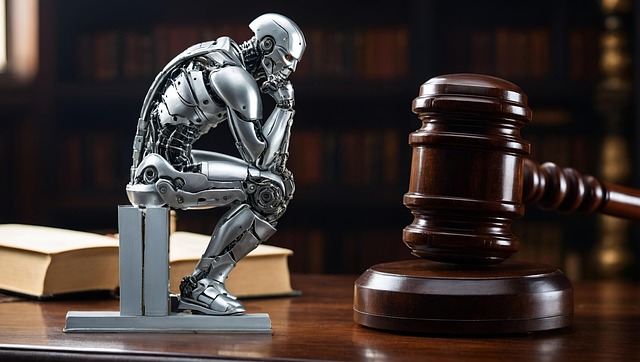The impact of jury demographics on verdicts is crucial in criminal defense. Demographic factors like race and gender influence juror decision-making, leading to biased outcomes. Skilled attorneys strategize by questioning jurors about demographics, life experiences, and affiliations to overcome biases. Diverse juries bring varied perspectives, resulting in more balanced decisions. Understanding these impacts ensures fairness, strengthens advocacy, and addresses systemic racial disparities in verdicts.
Criminal defense attorneys face a complex challenge in ensuring their clients receive fair trials. This article delves into critical aspects shaping verdict outcomes, focusing on the impact of jury demographics. We explore how unconscious biases and demographic diversity influence perceptions in courtrooms. By understanding these factors, attorneys can craft more effective legal arguments and navigate the nuances of cultural sensitivity. Additionally, we present statistics highlighting racial disparities in verdicts, underscoring the need for strategies to promote fairness in criminal trials.
- Understanding Jury Bias: Unconscious Influences
- Demographic Diversity: Impact on Case Perceptions
- Cultural Sensitivity in Legal Arguments
- Statistics: Race and Verdict Disparities
- Fair Trials: Strategies for Defense Attorneys
Understanding Jury Bias: Unconscious Influences
The role of a criminal defense attorney goes beyond legal argumentation; it involves navigating complex human dynamics, including understanding potential jury bias. Unconscious biases, shaped by individual experiences and societal influences, can significantly impact how jurors perceive evidence and ultimately render verdicts. Research has highlighted various factors, such as race, gender, and socio-economic status, that may unconsciously influence a juror’s decision-making process. For instance, studies have shown that in cases involving white-collar offenses, perceived social status can play a role. Defendants from diverse backgrounds or those perceived as less affluent might face challenges in securing fair judgments due to these unconscious biases.
Overcoming such biases requires strategic legal representation that delves into the nuances of jury composition and behavior. Skilled defense attorneys must be adept at questioning potential jurors about their demographics, life experiences, and political or philanthropic affiliations to uncover any implicit influences. By doing so, they can ensure a more balanced and impartial trial, achieving extraordinary results not just through legal tactics but also by addressing the impact of these unconscious factors on the verdict.
Demographic Diversity: Impact on Case Perceptions
The demographic diversity of a jury can significantly influence how a case is perceived and ultimately, the verdict reached. Research suggests that when juries reflect the community they serve, both in terms of racial and ethnic makeup, it fosters a more balanced and fair decision-making process. This is particularly crucial in high-stakes cases where the outcome can mean a complete dismissal of all charges or a severe sentence. A diverse jury brings together various perspectives and life experiences, allowing for a more nuanced understanding of the evidence presented.
Attorneys advocating for clients in these situations often leverage this demographic diversity to their advantage. An unprecedented track record of successful outcomes in similar cases can be a powerful tool when pitching a diverse jury pool. By appealing to the shared values and experiences of jurors from different backgrounds, criminal defense attorneys can construct compelling arguments that resonate with each member, ultimately enhancing their client’s chances of receiving a fair trial.
Cultural Sensitivity in Legal Arguments
In the realm of criminal defense, cultural sensitivity is a vital tool for attorneys advocating on behalf of their clients. Understanding the diverse backgrounds and perspectives of both jurors and defendants can significantly impact the outcome of legal arguments. The general criminal defense strategy often involves navigating complex social and cultural issues that shape public opinion and, consequently, jury decisions. By recognizing and addressing these nuances, attorneys can ensure a fair trial and challenge potential biases that may affect verdicts.
The composition of juries, with their varying demographic backgrounds, plays a crucial role in shaping legal outcomes, particularly when considering the impact of jury demographics on verdicts. Cultural sensitivity allows defense lawyers to bridge the gap between the law and the lives of those they represent, fostering an environment where justice is served equitably. This approach not only benefits the respective business of criminal defense but also strengthens the philanthropic and political communities by upholding principles of equality and fairness within the legal system.
Statistics: Race and Verdict Disparities
In the realm of criminal defense, statistics reveal striking disparities based on race when it comes to verdicts. Studies show that individuals of color face systemic biases, impacting their likelihood of receiving fair trials and resulting in higher conviction rates compared to their white counterparts. This phenomenon is particularly evident in high-stakes cases, including those involving white-collar and economic crimes, where the consequences can be severe.
Across the country, these disparities highlight the critical need for a diverse legal profession. Juries composed of varied demographics are crucial in mitigating bias, as they bring different life experiences and perspectives to the table. Understanding the impact of jury demographics on verdicts is essential, especially when addressing systemic issues that affect minority communities disproportionately.
Fair Trials: Strategies for Defense Attorneys
Ensuring fair trials is a cornerstone of any just legal system, and defense attorneys play a pivotal role in navigating this landscape. One key aspect to consider is the impact of jury demographics on verdicts. The composition of juries—reflecting the diverse nature of the community—is crucial for impartiality and an unbiased trial process. Studies have shown that varying demographic backgrounds can influence decision-making, highlighting the importance of strategic choices by defense counsel.
Attorneys must be adept at challenging prejudicial information and ensuring their clients receive a thorough and fair hearing. In high-stakes cases involving white-collar and economic crimes, for instance, understanding the political and philanthropic communities’ perspectives is essential. By employing these insights, defense attorneys can craft compelling arguments, ultimately impacting the outcome of trials and upholding the principles of justice in a complex legal environment.
The impact of jury demographics on verdicts is profound, highlighting the need for criminal defense attorneys to be aware of unconscious biases and cultural sensitivities. By understanding the influence of demographic factors and employing strategies to mitigate potential disparities, legal professionals can ensure fair trials. This approach not only strengthens the justice system but also guarantees that every defendant receives a thorough and impartial consideration of their case.






